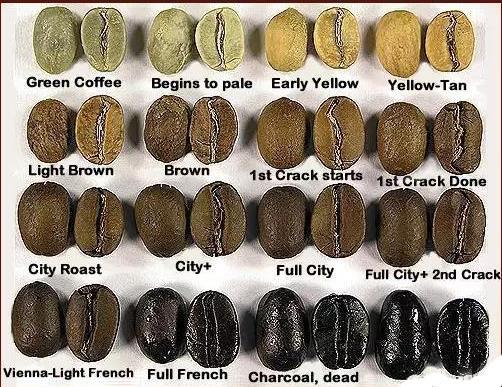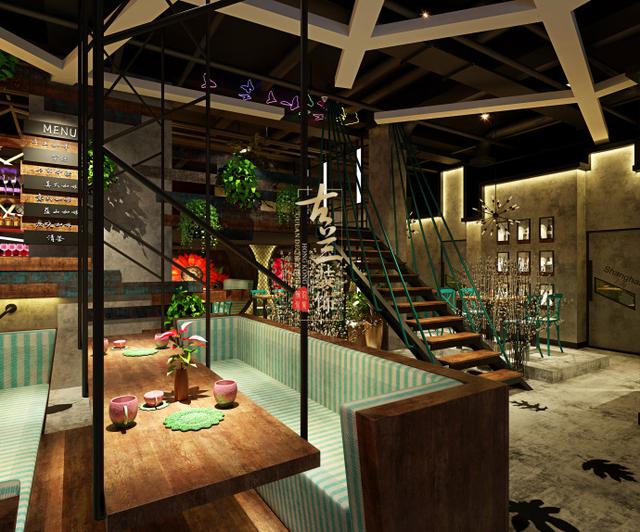Do Koreans drink coffee more often than rice and drink two cups of coffee a day?
Coffee, a traditional Western drink, is as popular in South Korea as Christianity is in this East Asian country (about 30 percent of Koreans are Christian, and as high as 50 percent in Seoul), making it difficult for other countries to catch up. According to Yonhap news agency Seoul January 11, South Korea's Ministry of Health and Welfare and Disease Management Headquarters released on the 11th "2015 National Health Statistics Report" shows that South Korean adults drink coffee an average of 11.99 times a week, intake frequency is higher than eating rice (6.52 times) and miscellaneous rice (8.93 times), equivalent to an average of 1.7 cups of coffee a day. 88% of Koreans drink coffee every day.
Cafes can be seen everywhere on the streets of Korea
The survey was conducted among 3417 adults aged 19-64. Among the interviewees, 24.43% drank coffee more than 3 times a day, 66.06% drank coffee more than 1 time a day, and 12.0% did not drink coffee.
Coffee is known as the "national drink" in Korea. In fact, coffee has only been introduced to Korea for more than 100 years, but Koreans are obsessed with coffee beyond the imagination of foreigners. Coffee shops are not only places to sell coffee, but also a good place to learn about work, but also a place to make friends and establish contacts.
Coffee shops have become part of everyday life in South Korea.
According to historical records, coffee was introduced into Korea in the Korean era at the end of the 19th century. At that time, North Korea experienced the Yiwei Incident. In order to avoid the threat of Japan, Gao Zong hid in the German residence in South Korea and became the first Korean to drink coffee. Since then, Emperor Gaozong's love for coffee has been out of control.
But at this time, coffee is only a luxury that Korean upper class can enjoy, and ordinary people rarely see it.
In the 1950s, American occupation soldiers drank coffee, and Korean people looked forward to it. But for ordinary Koreans at that time, coffee was a foreign high-end drink that did not dare to climb high. In the 1970s, South Korea's economy began to develop rapidly, ushering in the so-called "Han River miracle." Coffee is no longer superior, it has become an affordable drink, and it has become a national fashion. It can even be said that at the level of daily life, drinking coffee became a symbol of "Korea getting rich" and "connecting with the international community" at that time.
In fact, over the years, our coffee consumption in China has also risen sharply. There are more and more cafes on the streets. Many people like the taste and taste of coffee. But what else is coffee good for?
Xiao Bian checked a little information, the benefits are still there, coffee can refresh the mind, accelerate metabolism. Coffee contains caffeine, which is similar to tea polyphenols and contains active ingredients such as antioxidants, which contribute to cardiovascular health. Drinking coffee after meals can accelerate the secretion of digestive juice and achieve the effect of digestion. However, for people who already have gastrointestinal diseases, drinking too much coffee is not only not good, but also exacerbates the disease.
It is best to drink coffee half an hour after a meal, not before meals. Drinking coffee before meals can affect the body's absorption of iron, calcium and other mineral elements, resulting in the loss of iron and calcium. Coffee is an exciting drink, excessive drinking may lead to insomnia, tension, stomach discomfort and so on. From a nutritional point of view, normal people drink one or two cups of coffee a day is enough, it is best not to drink at night.
In addition, it is best not to add sugar and other sugars in coffee, and it is best to add milk. Some coffee shops add more plant fat powder or creamer, long-term intake or harm cardiovascular health. Adding milk not only improves the taste, but also compensates for the loss of calcium.
Source from Dagong Network
Important Notice :
前街咖啡 FrontStreet Coffee has moved to new addredd:
FrontStreet Coffee Address: 315,Donghua East Road,GuangZhou
Tel:020 38364473
- Prev

The common sense about coffee roasting, the roasting of coffee beans, the mellow taste of coffee
What is baking? What is the definition of baking? Generally speaking, the so-called coffee roasting (coffee roasting) refers to the process that through heating the raw beans, a series of physical and chemical reactions take place inside and outside the coffee beans, and in this process, the sour, bitter, sweet and other flavors of the coffee are formed, forming mellowness and hue, and converting the raw beans into dark brown beans. The baked one is heavy
- Next

Time Gargen-COFFEE BAR Design case appreciates the Creative Design concept of Cafe
The classic deduction of the community economy + O2O model, forced to reflect (enjoy life with a cup of coffee, petty bourgeoisie literature and art), can make guests come here for consumption as a habit; this case is the combination of coffee, red wine, chess and cards. Through a comprehensive analysis of the factors such as brand temperament (DNA), target consumer population, business model, household structure and market acceptance of decorative style, the designer suggests that this case should be based on LOFT.
Related
- What grade does Jamaica Blue Mountain No. 1 coffee belong to and how to drink it better? What is the highest grade of Blue Mountain coffee for coffee aristocrats?
- What are the flavor characteristics of the world-famous coffee Blue Mountain No. 1 Golden Mantelin? What are the characteristics of deep-roasted bitter coffee?
- Can I make coffee a second time in an Italian hand-brewed mocha pot? Why can't coffee be brewed several times like tea leaves?
- Hand-brewed coffee flows with a knife and a tornado. How to brew it? What is the proportion of grinding water and water temperature divided into?
- What is the difference between Indonesian Sumatra Mantinin coffee and gold Mantinin? How to distinguish between real and fake golden Mantelin coffee?
- What does bypass mean in coffee? Why can hand-brewed coffee and water make it better?
- Unexpected! Ruixing Telunsu lattes use a smoothie machine to foam milk?!
- % Arabia's first store in Henan opens into the village?! Netizen: Thought it was P's
- Does an authentic standard mocha coffee recipe use chocolate sauce or powder? Mocha Latte/Dirty Coffee/Salty Mocha Coffee Recipe Share!
- What is the difference between Vietnam egg coffee and Norway egg coffee? Hand-brewed single product coffee filter paper filter cloth filter flat solution!

